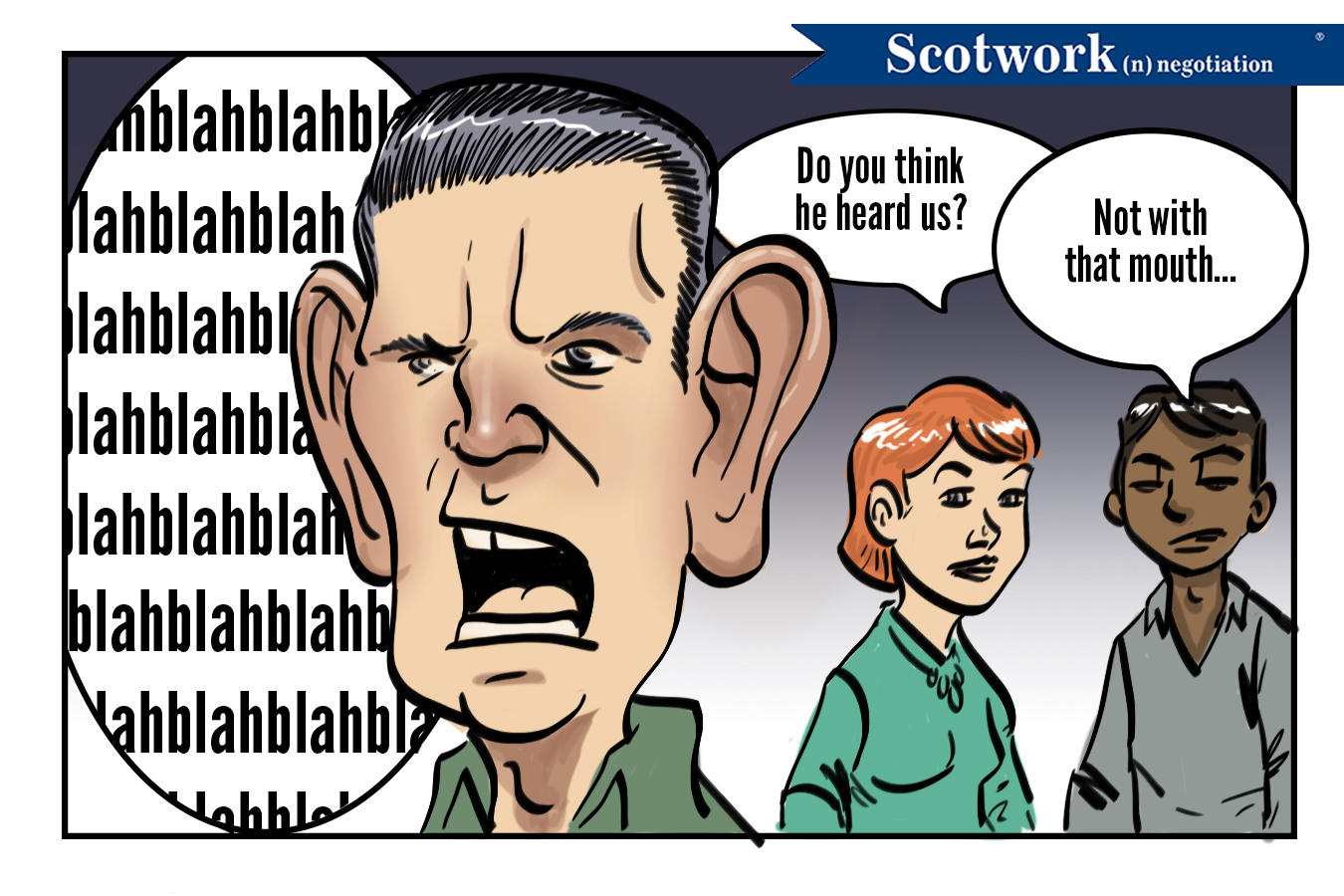There are two highly valuable weapons in every negotiator’s toolbox that are frequently overlooked, old, blunt, rusty and unused.
Your left ear, and your right ear.
So many of us are in such a hurry to share our opinion, to persuade the other side to agree with our world view, to talk, that we switch off our ears.
We hear, but we don’t listen or comprehend. And in my experience, you’ll rarely learn anything useful while your mouth is open.
If you’ve ever played poker, or even watched a few old episodes of Law & Order or CSI, you’ll be familiar with the concept of “tells” – slight nuances of body language that convey confidence, nervousness or even guilt. Most people are quite unaware that they’re giving these tells, and most of us are pretty poor at reading them.
Reading body language is an important skill for serious negotiators.
But in my experience, far more important are “verbal tells” – the unconscious nuances of language, the specific choice of words that the other side. These can often give you the inside scoop on what they’re actually thinking, and on what’s possible in the negotiation.
I can’t do that right now.
That would be really difficult.
When we hear these types of statements, most of us hear “NO”. Our immediate focus is on the stick (the bad news). But there’s huge value in listening for potential carrots:
I can’t do it right now… (but I might be able to do it later)
Really difficult… (but not impossible?)
Good negotiators seek to understand before seeking to be understood. Get the other side talking - be curious, be inquisitive (and non-threatening). And pay particular attention to the signals of flexibility, the good news, not just the points of contention…
If you’re keen to brush up on your listening skills, and start “hearing the carrots”, here’s a challenge for you. Find a friend who has the opposite political persuasion to you. (Yes, these days you may have to drive to another state to find one, but bear with me on this one…)
Spend 15 minutes asking them about their political views. Make no statements – none at all – limit yourself to just asking questions. For most of us, this takes some serious effort. If they say something really stupid, (or perhaps, when they do), don’t argue – respond with friendly follow-up questions “That’s interesting - tell me more. How did you arrive at that view? Talk me through how that works. Can you give me some specific examples of where that worked”.
And listen carefully to what they say. I’m confident you’ll learn more about their real worldview than you thought, and you’ll discover that you have more in common, politically, than you thought.
Now, if you could just convince our politicians to do the same…
Happy listening!

